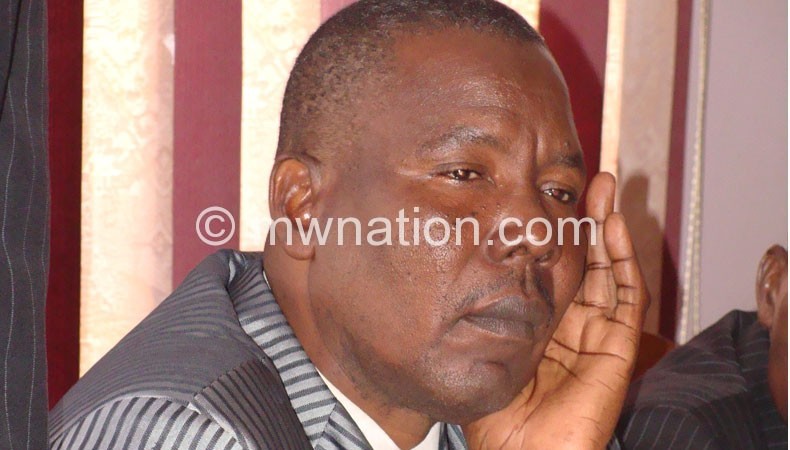Court settles Tengani chieftaincy wrangle
The Supreme Court of Appeal has finally settled a long outstanding dispute of the rightful successor to the throne of Chief Tengani of Nsanje by giving it to the appellant Thomas Chindevu.
The ruling effectively dethrones Chigule Soda Phiri Tengani who was appointed to the throne in 2003 and acted as Senior Chief Tengani all along.
The High Court, presided over by Judge McLean Kamwambe, in November 2010 ruled in favour of Thomas Chindevu by setting aside the appointment of Tengani as a Senior Chief Tengani

case against him: Tengani
Later, the late Joseph Manyungwa allowed Tengani to proceed with an appeal in the Supreme Court, but the Chindevu family, through their lawyer, argued and appealed at Supreme Court to have Manyungwa’s decision reversed, arguing that the appeal was filed against dictates of the law that provides timeframe within which one may file an appeal.
Tengani appeared at the Supreme Court alongside the Attorney General (AG) as respondents, government being the appointing authority, while the Chindevu family appeared as the appellant.
Deciding the case, three judges of the Supreme Court observed that considering that the appeal was out of time, was to establish whether there was an application to extend time to appeal, which they found was not there.
The three judges—Edward Twea, Richard Chinangwa and Dunstain Mwaungulu—said the limitation of time to appeal is not a procedural issue but is about the rights of the parties: the party that has a decision in its favour and the other party that has lost.
The judges’s ruling said: “Further, we doubt if a request to waive a procedural issue, even though it was wrongly made in this case, would be deemed to be an application for extension of time to appeal.
“We do not think so. We find, therefore, that there was no application to extend time to appeal by the first respondent [the AG], or, if we may, the respondents. As we said earlier, the party that had a judgement in its favour has a right to enforce that judgement.”

decided the case: Twea
The judges said this right is subject to the right to appeal by the party that does not have the judgement in its favour. They said the right to appeal is, however, only absolute where the party intending to appeal is within due time.
The three judges ruled: “Where there is no application showing cause for being out of time to appeal; the court has no inherent jurisdiction to extend time to appeal.
“The court below, therefore, erred to extend time to appeal where there was no application. And we so find. The order extending time to appeal is hereby set aside.”





